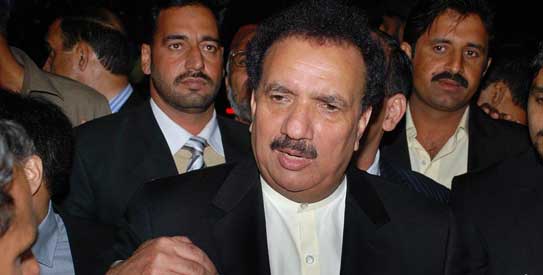
PAKISTAN: Mohammed Hasib lost his older brother in a car bombing two years ago that destroyed their small shop selling woman's accessories and killed more than 100 people. He has since rebuilt and business is improving, thanks to a significant drop in militant violence in Pakistan this year.
The number of people killed in suicide attacks in Pakistan in the first 11 months of 2011 dropped almost 40 per cent compared to the same period last year, according to data compiled by the Pak Institute for Peace Studies. Deaths from all attacks by militants fell nearly 20 per cent.
This trend contrasts with rising violence in Afghanistan, where a suicide bomber killed 56 people outside a Shia Muslim shrine in Kabul on Tuesday who were marking a major Islamic holy day. A Pakistan-based group, Lashkar-e-Jhangvi al-Alami, reportedly claimed responsibility for the attack, although the validity of the claim could not be verified.
The most notable drop in Pakistan has been in mass-casualty attacks in large cities outside the northwest, such as Islamabad, Lahore and Karachi. Pakistani Interior Minister Rehman Malik actually thanked the Pakistani Taliban on Tuesday for not staging attacks in the country during Ashura, when Shias commemorate the death of Imam Hussein.
Despite the decline, violence still takes a large human toll in the country in daily attacks, and no one is claiming victory. Nearly 1,700 people were killed in ''terrorist'' or ''insurgent'' attacks throughout November, according to the institute, excluding those in Baluchistan that were mostly carried out by nationalists, not militants. More than 670 people were killed in suicide attacks. The numbers killed in the same period last year were around 2,100 and 1,060, respectively.
''The situation has improved, but people are still scared,'' said Hasib, 30, whose shop is located in the northwest city of Peshawar's Mina bazaar. ''It will take time for people to fully recover.''
The bombing on October 28, 2009, was so devastating that all Hasib was able to find of his brother, Mohammed Salim, was his identity card, in a gutter across the street from their shop. Hasib sold his house to rebuild the shop and married his brother's widow to take care of her and her two children, a common practice in some parts of Pakistan.
Peshawar, located on the edge of the tribal region and close to the Afghan border, has been the worst hit major Pakistani city. Police, army and civilian targets were bombed almost daily toward the end of 2009 after the military carried out a major offensive in South Waziristan, the Pakistani Taliban's main sanctuary in the tribal region.
''You can't imagine how terrible those days were for us,'' said Waris Khan Afridi, 58, president of the trader's association in Peshawar's Saddar bazaar. ''There were times when the bazaar was deserted and even shopkeepers weren't coming.''
Afridi and others said business has improved significantly over the last year, but is still down relative to the period before the Pakistani Taliban began their insurgency in earnest in 2007. The Saddar and Mina bazaars were bustling during a recent trip, packed with women buying new clothes for Pakistan's wedding season.
The last major attack in Peshawar was in mid-September when a bomb planted on a motorcycle exploded in a market selling music and movies, killing five people.
Hasan-Askari Rizvi, a Pakistani political and defense analyst, said military operations in the tribal region and in Khyber Pakhtunkhwa province since the spring of 2009 have disrupted the militants, making it more difficult for them to train suicide bombers and transport them outside the northwest.
''The operations have not been able to eliminate the militants altogether, but they have certainly weakened them,'' said Rizvi.
The military has carried out offensives in every part of the tribal region except North Waziristan. But no area is fully under control, and the government has struggled to undertake the kind of reconstruction and development that could address some of the root causes of militancy.
Mohammed Amir Rana, director of the Pak Institute for Peace Studies, said he believes US drone attacks are the chief reason behind the drop in violence. The attacks have killed key Taliban and al-Qaida commanders, something Pakistani military operations have largely failed to do.











































